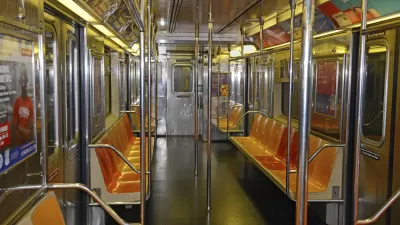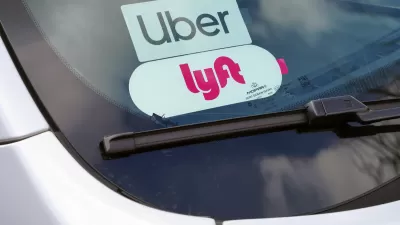"American households will no longer aspire to own two cars in every garage, but instead will have mobility apps on every phone, to hail self-driving vehicles that they will share rather than own." Jeffrey D. Sachs, Columbia University

Courtesy of the Rocky Mountain Institute
It is interesting to note how the forecast for the arrival of autonomous cars has been changing in the past few years. In 2005, experts predicted the arrival of commercial autonomous cars around 2040. Now almost everyone agrees that we'll have commercial self-driving car services before the end of the decade.
John Zimmer, co-founder of Lyft, recently wrote in Medium: "By 2025, private car ownership will all-but end in major U.S. cities."
How many rides will autonomous cars provide? It is difficult to say. If autonomous robo-taxis can take away most of the taxi rides, plus the current car-sharing and ride-sharing market, the potential market is enormous. Recently researchers from the Rocky Mountain Institute predicted that by 2025, automated mobility services could be a $120 billion business in the United States alone.
For traditional automakers this new mobility ecosystem is a huge disruption of their current business model. They are, however, embracing it, even if their motivation is simply survival. In other words, they may have no choice but to jump on the bandwagon.
That has been the end game for newcomers to the auto industry. Tesla's goal from the start was to develop self-driving cars, so their current strategy of selling electric cars to consumers serves to scale up production, test self-driving technology, and collect as much data as possible about potential users of a future mobility service.
Ride-share companies such as Uber and Lyft, and internet firms such as Apple and Google, will have an enormous technology advantage. Those businesses have huge databases of personal mobility at their disposal, collected continuously from smartphone apps and operating systems. When autonomous rides become a market reality, those databases will help them to optimize their services to cities and areas where they can get the most revenue from their fleets.
Read the rest of the article on EBN
FULL STORY: Autonomous Car Mobility Shifts Electronics Industry

Maui's Vacation Rental Debate Turns Ugly
Verbal attacks, misinformation campaigns and fistfights plague a high-stakes debate to convert thousands of vacation rentals into long-term housing.

Planetizen Federal Action Tracker
A weekly monitor of how Trump’s orders and actions are impacting planners and planning in America.

In Urban Planning, AI Prompting Could be the New Design Thinking
Creativity has long been key to great urban design. What if we see AI as our new creative partner?

How Trump's HUD Budget Proposal Would Harm Homelessness Response
Experts say the change to the HUD budget would make it more difficult to identify people who are homeless and connect them with services, and to prevent homelessness.

The Vast Potential of the Right-of-Way
One writer argues that the space between two building faces is the most important element of the built environment.

Florida Seniors Face Rising Homelessness Risk
High housing costs are pushing more seniors, many of them on a fixed income, into homelessness.
Urban Design for Planners 1: Software Tools
This six-course series explores essential urban design concepts using open source software and equips planners with the tools they need to participate fully in the urban design process.
Planning for Universal Design
Learn the tools for implementing Universal Design in planning regulations.
Gallatin County Department of Planning & Community Development
Heyer Gruel & Associates PA
JM Goldson LLC
City of Camden Redevelopment Agency
City of Astoria
Transportation Research & Education Center (TREC) at Portland State University
Jefferson Parish Government
Camden Redevelopment Agency
City of Claremont





























